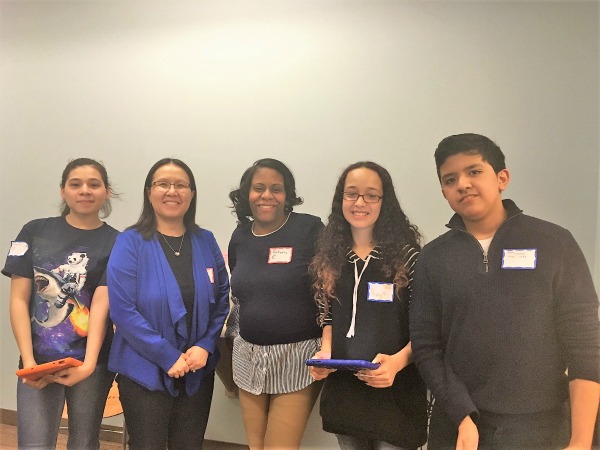3 min read
Komatsu supports reforestation at New River Gorge National Park and Preserve
- Sustainability,Blog,Social responsibility
April 15, 2020
Innovation and technology, Social responsibility
3 min read

In the United States, we prepare high school students for proficiency in standard subjects like science, math, language and history. But what about proficiency in something that will undoubtedly impact the quality of life for an individual as they move from graduation through retirement? What about a requirement for students to receive personal finance education?
It turns out that most states do not require students to take a personal finance or economics course. According to a 2018 survey conducted by the Council for Economic Education (CEE), only 17 states require a course on personal finance and only 22 states require an economics course. This means students enter adulthood ill-prepared to understand the basics of managing their personal finances.
Therefore, programs like Junior Achievement’s Finance Park are one way that young adults can gain exposure to key fundamentals like budgeting, insurance, mortgages, managing credit and debt, investing in retirement and more.
Recently employees from Komatsu Mining Corp in Milwaukee spent the day with eighth graders from Morgandale School to facilitate the Finance Park program.
We've supported Junior Achievement for several years in various ways, but this is the first time we’ve volunteered for Finance Park said Cathy Stagmer, Manager – Social Responsibility. It was exciting to hear the positive feedback from the employees who volunteered; you could tell they knew the experience was impactful in shaping the students’ attitudes toward careers and finances.
Mike Millies, Business Development Manager – LCM, was drawn to the volunteer experience because it aligned with his formal education. With having a Bachelor’s Degree in Finance, I know how important financial knowledge is to one’s success. The knowledge that is gained will help both at home and in the work place. It will help to set budgets along with setting achievable financial goals for themselves or their employer.
Millies recognized the importance financial literacy plays in setting students up for success. It is important to have financial literacy for a number of reasons; these include the ability to sustain a level of comfortable living for you and your family along with setting up your children for financial success in their life. Also having a basic financial understanding helps you protect yourself from potential scams that are present in today's world.
Millies added, Community impact is created by the transfer of financial knowledge from one generation to another. You pass on the ability to financially support themselves and their family’s needs. With financial stability you create local investment, be that with people starting small businesses within the community to even renovating the homes that they live in. This all has positive impacts on the community that they live and work in.

The ripple effect of a community that is well versed in financial literacy is far reaching. Improving the financial literacy of young adults can set them up to be stronger, stable contributors to the local economy. Students gain a greater understanding about making choices in their post-secondary education, how to manage finances and how to build for retirement once they secure a job. If you’re interested in furthering financial literacy in your own community visit Junior Achievement to learn about its global reach at JA Worldwide.